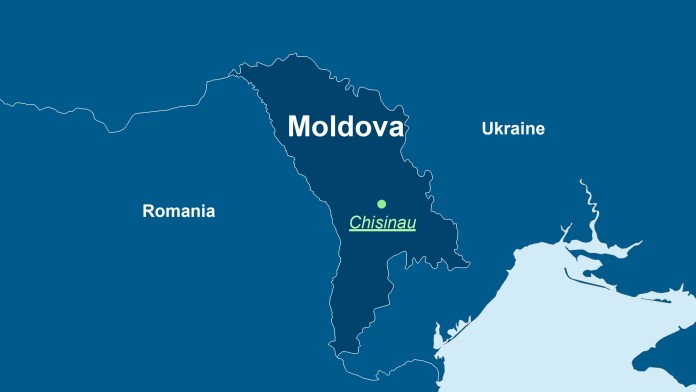
As of: 02/2024
The republic Moldova is one of the poorest countries in Europe. Families depend on remittances from relatives working abroad. Especially in rural areas, the quality of life is very low and the municipal infrastructure, such as the water supply system and wastewater disposal system, is run-down. KfW Entwicklungsbank is supporting Moldova in rehabilitating and modernising its infrastructure.
The water and wastewater infrastructure of the municipalities of Moldova is predominantly still from the Soviet era and is no longer adequate neither quantitatively nor qualitatively. For decades, not only renewal and expansion investments, but also important maintenance work has been neglected, which has resulted in increased health and supply risks. The water supply in the Cahul district, which is provided by surface water from the Pruth River just 10 km away, is completely run-down, as is the transmission line to the water treatment plant in Cahul. The outdated transport and distribution network is in poor condition, with frequent leakages and burst pipes resulting in water losses of 50%. A further problem with dilapidated pipes is the risk of contamination, which impairs the quality of drinking water. Pollution of drinking water is caused, among other things, by frequent pipe bursts, especially in the sewer network, and contributes to the already existing poor hygiene standards, which entail health risks for the population.
For this reason, the Moldovan government has drawn up a national reform programme for the water and sanitation sector to provide the population with step-by-step access to adequate water and sanitation, thereby contributing to improved living conditions, health and economic development in rural communities as well.

As part of the German Financial Cooperation with Republic of Moldova the rehabilitation and expansion of the water supply, wastewater disposal, and sanitation network in the Cahul project region is supported. The project moreover supports the implementation of the EU-Moldova Association Agreement by promoting regional development and contributing to the conservation, protection and improvement of environmental quality in the water areas.
The project will implement a number of measures, including:
The objective of the project is to increase the number of people benefiting from high-quality water and sanitation services and to improve the quality of daily life, in particular for new households to be connected to the supply and sanitation networks. This will contribute to the improvement of living conditions, especially of the poor semi-urban and rural population, as well as to the protection of the environment and natural resources. In addition, the capacities of municipal and regional water suppliers for environmentally friendly and economically sustainable operation will be strengthened.
The German government and the European Union have committed EUR 54.4 million for project implementation. Moldova will also make its own contribution to the project.
The project promotes a sustainable, continuous and consumer-oriented drinking water supply as well as sustainable and environmentally sound wastewater disposal. The project makes a direct contribution to resource and environmental protection, in particular by reducing water loss and expanding the sewage system. In this way it contributes to reducing negative impacts on the health situation of the population and in particular of newborns and children.
The project contributes to the achievement of these following United Nations Sustainable Development Goals:
KfW Group
KfW Development Bank
Urban and Regional Development
Eastern Europe, Caucasus, Central Asia
KfW Office Chisinau
Share page
To share the content of this page with your network, click on one of the icons below.
Note on data protection: When you share content, your personal data is transferred to the selected network.
Data protection
Alternatively, you can also copy the short link: https://www.kfw-entwicklungsbank.de/s/enzBY4B4
Copy link Link copied